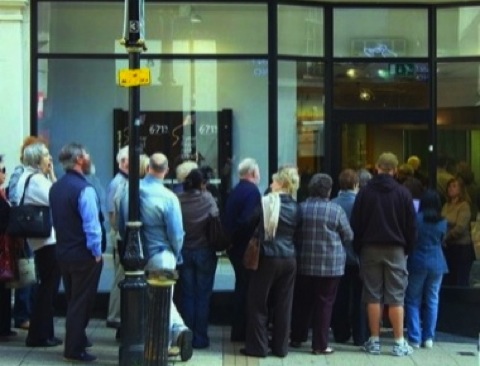The ability to delay gratification is a turning point in the development of any child and an hallmark of advanced cognition in many species. Nevertheless, most animals cannot withstand delays longer than few seconds, even when substantial rewards are at stake, and also humans are often strongly averse to waiting – think of yourself queuing at the post office and imagine how long you could endure it. Researchers at ISTC are studying adults, children and non-human primates to understand which factors affect our tolerance for delay.
An egg today or a hen tomorrow? Similar dilemmas are known as intertemporal choices: the subject has to decide between an immediate but smaller prize and a delayed but greater outcome. Intertemporal choices are everywhere in our daily life. Enjoying the sunny day and going out for a stroll, or staying home to study for next week exam? Eating the chocolate cake at the end of the dinner, or observing your diet in order to lose weight for summer? Buying a lavish dress that really suits you, or putting the money in your savings for retirement? How we make these choices affects the quality of our lives, and people who systematically fail to postpone gratification are usually regarded as impulsive. Hence intertemporal choices have attracted a lot of attention in economics, psychology, psychiatry, ethology and philosophy.
At ISTC the Goal-Oriented Agents Laboratory (GOAL) and the Unit of Cognitive Primatology (UCP) collaborate to understand what cognitive, social and environmental factors determine tolerance for delay in adults, children and other species.
For instance, is there a connection between delay tolerance and tool use? Recent findings suggest so: UCP researchers showed that capuchin monkeys (Cebus apella), New World primates separated from the human lineage 35 millions of years ago, have a remarkable tolerance for delay, compared to the performance of similar species. This is paralleled by capuchins' uncanny ability in tool use, thus suggesting a correlation between the two traits.
Another issue is whether food may induce more impulsive behavior than money, and why. In line with previous findings, GOAL researchers observed that humans are in fact less tolerant for delay with food rewards than with monetary rewards of comparable value. On the other hand, this preference turned out to be independent from delay: humans are more motivated to accumulate money than food, even when no waiting is required to do so. This shows that money makes us more greedy, not more patient, and that people in our society suffer more of greed than of gluttony.
Finally, a delay may be easier or harder to tolerate: it depends on the costs of waiting. GOAL and UCP studies indicate that both adults, children and capuchins are more willing to sustain a delay if it is finalized to attain a desirable outcome. Moreover, the variety of actions available when waiting is essential: delays bother us especially when we have nothing to do meanwhile. This points to a qualitative dimension of delay, which cannot be reduced to a mere quantitative measure – how many seconds, minutes, hours, or days you have to wait. How and why we wait is crucial in determining our tolerance for delay.
Contact: Fabio Paglieri, Elsa Addessi
ISTC Groups: Goal-Oriented Agents Lab, Unit of Cognitive Primatology
Relevant Publications
Evans T., Beran M., Paglieri F., Addessi E. (2012). Delaying gratification for food and tokens in capuchin monkeys (Cebus apella) and chimpanzees (Pan troglodytes): When quantity is salient, symbolic stimuli do not improve performance. Animal Cognition 15 (4), 539-548.
Addessi E., Paglieri F., Focaroli V. (2011). The ecological rationality of delay tolerance: insights from capuchin monkeys. Cognition 119 (1), 142-147.
Paglieri F., Castelfranchi C. (2008). Decidere il futuro: scelta intertemporale e teoria degli scopi. Giornale Italiano di Psicologia 35 (4), 743-776 (target article).


